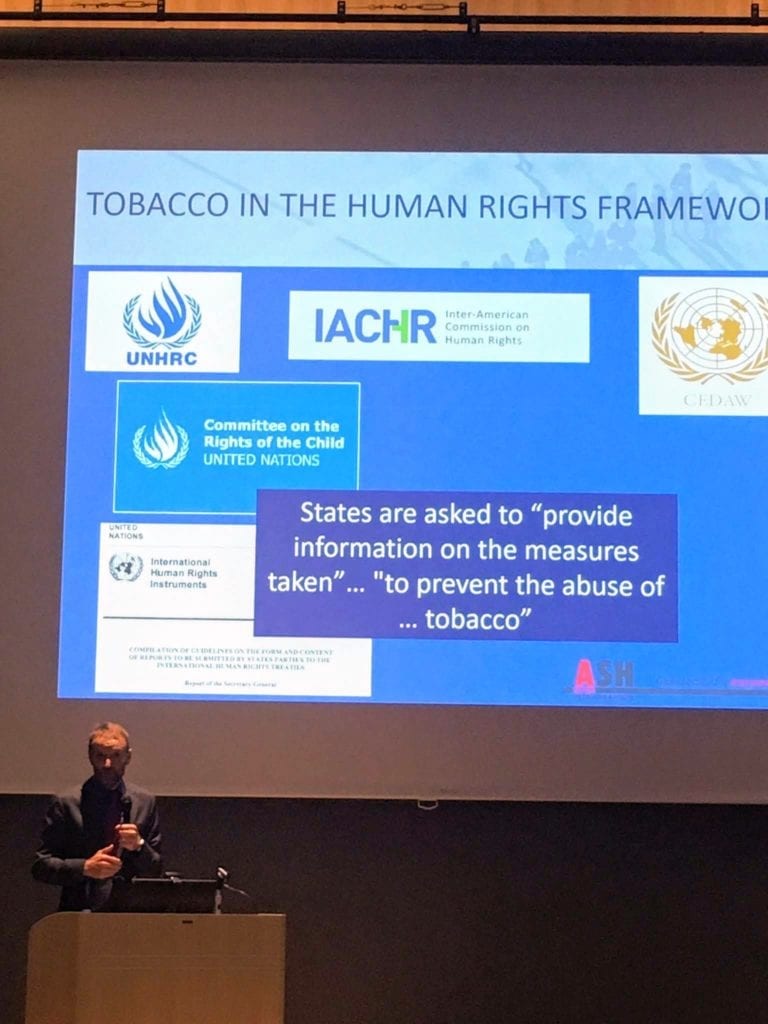
ASH has been working tirelessly to use human rights tools to advance health around the world. Recently, we were invited to bring this work to Japan.
While Japan joined the global tobacco treaty (the WHO Framework Conventional on Tobacco Control) in 2004, it is failing to adequately protect the health of its citizens from the behavior of the tobacco industry. For example, smoking in public and work places is still permitted in many places in Japan and the recent Global Tobacco Industry Interference Index country ranking placed Japan as the worst country when it comes to tobacco industry interference in public health policy.
The poor implementation of evidence based tobacco control policies, such as protecting all citizens from tobacco smoke and protecting health policy from tobacco industry, in Japan violates Article 25 of the Japanese Constitution which states that “in all spheres of life, the State shall use its endeavors for the promotion and extension of social welfare and security, and of public health” and it also goes against obligations Japan has vis-à-vis numerous human rights treaties it has ratified.
It is time for Japan’s civil society to take advantage of the existing human rights strategies to remind its government that unless it does more to protect Japanese citizens from the tobacco industry, it will fail to live up to its obligations under national and international human rights law.
ASH had the privilege to present the nexus between tobacco and human rights in Tokyo this past October when our Executive Director Laurent Huber was a plenary speaker at the Tobacco Induced Diseases conference. He also conducted a capacity building workshop with our Staff Attorney Kelsey Romeo-Stuppy video-conferenced in to train civil society on how to use human rights arguments and tools to advance lifesaving tobacco control measures.
Japan is due to report to the Convention on the Elimination of all Forms of Discrimination Against Women (CEDAW) in 2020 and the Human Rights Council Universal Periodic Review (UPR) in 2021. ASH will continue working with Japanese civil society to submit direct reports to these international human rights treaties to call on Japan to do more to protect the health of its citizens.